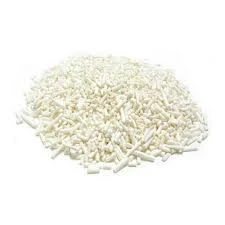
flavour enhancer monosodium glutamate
The Role of Monosodium Glutamate as a Flavor Enhancer
Monosodium glutamate (MSG) has been a prominent food additive for decades, celebrated in culinary circles for its ability to enhance flavor. As a sodium salt of glutamic acid, an amino acid naturally found in various foods, MSG offers a unique umami taste that elevates the overall flavor profile of dishes. This article explores the significance of MSG, its effects on taste perception, its safety, and its usage across different cuisines.
Understanding Umami
Umami, a term derived from Japanese meaning “delicious taste,” is recognized as one of the five basic tastes alongside sweet, sour, bitter, and salty. The discovery of umami can be traced back to the early 1900s when Professor Kikunae Ikeda identified the taste associated with glutamate in dashi, a traditional Japanese stock. Ikeda's research led to the isolation of MSG, which he marketed as a flavor enhancer. Since then, umami has become a vital component of various culinary traditions, contributing depth and balance to dishes.
The Science Behind MSG
The flavor-enhancing properties of MSG are attributed to its ability to stimulate umami receptors on the tongue. When consumed, MSG interacts with specific receptor sites that are sensitive to glutamate, creating a savory flavor experience. This effect is often described as making foods taste richer and more satisfying. Additionally, MSG can enhance the perception of other flavors in a dish, allowing for a more rounded taste without significantly adding calories or fat.
MSG is commonly used in various products, including soups, broths, processed meats, and snacks. It is also a staple in Asian cuisines, particularly in Chinese, Japanese, and Korean cooking, where it is frequently added to savory dishes to intensify flavor and provide that sought-after umami zing.
Safety and Controversies
flavour enhancer monosodium glutamate

Despite its widespread use, MSG has been surrounded by controversy regarding its safety. In the 1960s, a letter to the editor in a medical journal introduced the term “Chinese Restaurant Syndrome” (CRS), suggesting that MSG consumption could lead to adverse reactions, such as headaches and nausea. However, extensive scientific research has largely debunked these claims. Regulatory bodies, including the Food and Drug Administration (FDA), the World Health Organization (WHO), and the European Food Safety Authority (EFSA), have evaluated MSG and deemed it safe for the general population when consumed in typical dietary amounts.
Although some individuals may be sensitive to MSG and report mild symptoms, such reactions are considered rare. For most people, MSG can be consumed safely and without any negative effects. It's essential to understand that sensitivity can vary from person to person, similar to how some individuals may have lactose intolerance or gluten sensitivity.
Culinary Applications
The versatility of MSG has made it a favorite among chefs and home cooks alike. Its ability to enhance flavor without overpowering other ingredients allows it to be seamlessly integrated into a variety of dishes. In Western cuisine, MSG serves as an excellent seasoning for gravies, sauces, and marinades. In Asian cooking, it is frequently added to stir-fries, soups, and stews to elevate their taste and complexity.
Furthermore, MSG has gained popularity in the food industry as an effective means of promoting savory flavor in processed foods. As consumers increasingly seek products with bold flavors, MSG helps manufacturers create appealing offerings without the need for additional salt or fat.
Conclusion
Monosodium glutamate remains a powerful and widely used flavor enhancer that brings the umami taste to life. While it has faced scrutiny throughout its history, extensive research supports its safety and functionality in enhancing the culinary experience. As culinary experts continue to discover the diverse applications of MSG, its role in both home cooking and the food industry remains significant. With an understanding of this additive, consumers can make informed choices while enjoying the rich flavors it has to offer.
-
Aluminum Hydroxide: Quality Gels & Dried Gel AntacidNewsAug.31,2025
-
Buy High-Quality Trichloroisocyanuric Acid for Sale | TCCA 90% SupplierNewsAug.30,2025
-
Pure Sodium Dichloroisocyanurate Dihydrate | Powerful DisinfectantNewsAug.29,2025
-
Industrial Chemicals: Quality & Purity for Every IndustryNewsAug.28,2025
-
Nitrile Rubber Honoring Strict Production StandardsNewsAug.22,2025
-
Aspartame Ingredients Honoring Food Safety ValuesNewsAug.22,2025
-
Fertilizer for Balanced Plant NutritionNewsAug.22,2025
Hebei Tenger Chemical Technology Co., Ltd. focuses on the chemical industry and is committed to the export service of chemical raw materials.
-

view more DiethanolisopropanolamineIn the ever-growing field of chemical solutions, diethanolisopropanolamine (DEIPA) stands out as a versatile and important compound. Due to its unique chemical structure and properties, DEIPA is of interest to various industries including construction, personal care, and agriculture. -

view more TriisopropanolamineTriisopropanolamine (TIPA) alkanol amine substance, is a kind of alcohol amine compound with amino and alcohol hydroxyl, and because of its molecules contains both amino and hydroxyl. -

view more Tetramethyl Thiuram DisulfideTetramethyl thiuram disulfide, also known as TMTD, is a white to light-yellow powder with a distinct sulfur-like odor. It is soluble in organic solvents such as benzene, acetone, and ethyl acetate, making it highly versatile for use in different formulations. TMTD is known for its excellent vulcanization acceleration properties, which makes it a key ingredient in the production of rubber products. Additionally, it acts as an effective fungicide and bactericide, making it valuable in agricultural applications. Its high purity and stability ensure consistent performance, making it a preferred choice for manufacturers across various industries.





